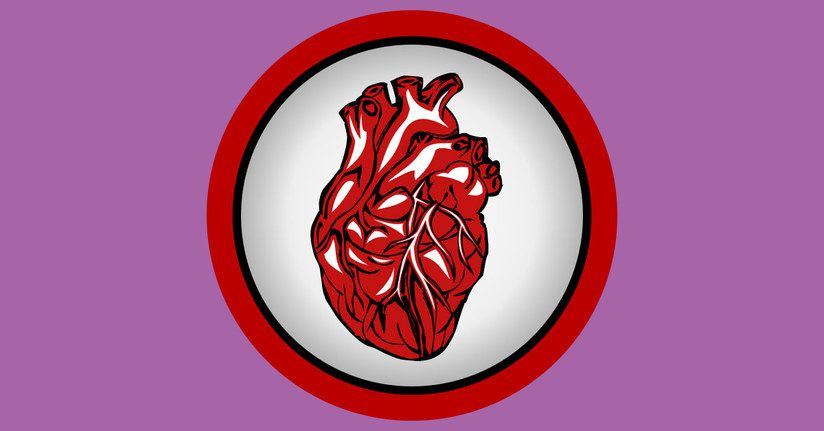Migraine and the Risk of Heart Disease
For the first time ever, migraine has been included as a risk factor for heart disease and other cardiovascular events as part of the prominent QRISK3 assessment, which was released last month. Specifically, researchers found that the presence of migraine increased the risk for heart disease by 36% for women and 29% for men.(1) We explore what this means for people who have the headache disorder.
Why do these new findings matter?
An important aspect of this new study is the continuing exploration of migraine comorbidities, or other chronic conditions that are simultaneously present along with migraine. This information helps individuals better understand some of the auxiliary physical and emotional conditions that can both be affected by and complicate their migraine diagnosis. It also is noteworthy that this is the FIRST time the headache disorder has been included in this specific risk assessment, which is used to predict the possibility of a patient developing cardiovascular disease or other heart-related issues.
Furthermore, these latest results reinforce prior research on the link between the two conditions. One of the more noteworthy connections came in a 2016 study which showed an elevated risk for women with migraine for major cardiovascular events, including heart disease, angina or other coronary procedures, and stroke. In addition, there was also a higher chance of death due to cardiovascular disease.(2) Research also suggests that migraine with aura may be especially susceptible to these medical concerns.(3)
These new findings also encourage both patients and doctors to watch out for other prominent risk factors—such as smoking, age or high blood pressure—as they may compound the problem.
Tips for Reducing Your Risk
Receive proper migraine diagnosis
Migraine remains one of the most underdiagnosed conditions, which makes it imperative to seek out a medical professional. There are hundreds of certified headache specialists across the nation that are able to diagnose and treat migraine. In addition, as there is greater concern for patients who have migraine with aura, a proper diagnosis is necessary to better understand and assess the overall risk for heart disease.
Identify other possible risk factors
Consult with your physician or specialist to get evaluated for other traditional risk factors for heart disease, including high blood pressure or cholesterol, diabetes, and family history of cardiovascular issues. Treating these auxiliary medical concerns can help minimize the likelihood of future heart-related problems.

Maintain a healthy and active lifestyle
Although it can be a challenge navigating migraine triggers, engaging in regular physical exercise has been shown to have a significant benefit. Healthy eating, getting plenty of sleep, and proper hydration are also critical steps to reducing any potential onset of heart disease.
Stop (or never start) smoking
One of the longstanding risk factors for cardiovascular disease is smoking. According to the American Heart Association, smoking “increases blood pressure, decreases exercise tolerance and increases the tendency for blood to clot.” And in conjunction with migraine, it has the potential to exponentially increase the risk.
Reduce stress
Although it is unclear exactly how stress contributes to heart disease, it is believed that it can enhance the negative effects of other physiological and behavioral factors—such as increasing blood pressure or leading to an unhealthy diet. Instances of anxiety, depression and other psychological disorders are already higher for people with migraine. Identifying and reducing the impact of migraine triggers, regular exercise, and stress relieving activities (such as yoga or meditation) are simple ways to begin removing unnecessary burden on your life.
Be cautious with migraine and other medications
The American Migraine Foundation cautions patients about the use of triptans—especially if they already present an increased risk of heart disease based on other factors—because they can lead to a constriction of blood vessels. Conversely, other meds may help reduce clotting. In addition, progesterone-based contraceptives may be safer alternatives than those with estrogen for similar reasons. Discuss any medications with your doctor to determine which are right for you.
Get more migraine-related tips
Sign up to receive them in your inbox
References:
1 Hippisley-Cox, J., Coupland, C., & Brindle, P. (2017). Development and validation of QRISK3 risk prediction algorithms to estimate future risk of cardiovascular disease: prospective cohort study. The BMJ, 357, j2099. http://doi.org/10.1136/bmj.j2099.
2 Kurth Tobias, Winter Anke C, Eliassen A Heather, Dushkes Rimma, Mukamal Kenneth J, Rimm Eric B et al. Migraine and risk of cardiovascular disease in women: prospective cohort study BMJ 2016; 353 :i2610.
3 Kurth T, Gaziano JM, Cook NR, Logroscino G, Diener H, Buring JE. Migraine and Risk of Cardiovascular Disease in Women. JAMA. 2006;296(3):283-291. doi:10.1001/jama.296.3.283.
TheraSpecs Glasses for Your Health
Try our therapeutic glasses and get relief for issues triggered by light, such as migraines, headaches, photophobia, concussion symptoms, seizures, eye health, and sleep.





